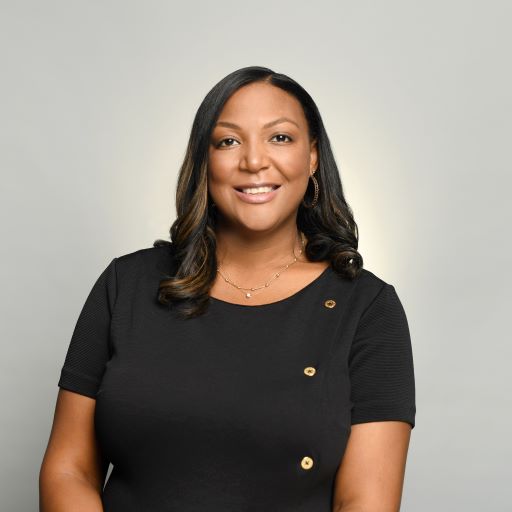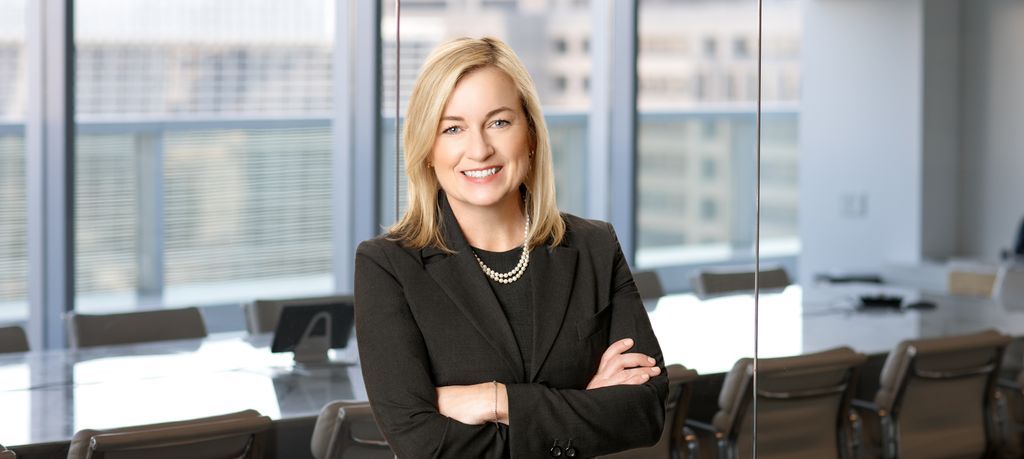ChIPs 20th Anniversary
Real
Mentors, Real Stories
As part of our 20th Anniversary, ChIPs is speaking with mentors and mentees on what makes a mentorship work, how you become a mentor, and where all the mentors are. Check out the Q&As below.

“A mentor needs to create a safe space for a mentee to share goals and struggles and show their vulnerabilities.”
Whitney Smallwood
Director of Diversity & Inclusion, Fish & Richardson
Member since 2017
How do you approach mentoring?
I’m a big fan of group mentoring, when possible. Group mentoring often works better than one-on-one mentoring, because sometimes the mentor and mentee hit it off, sometimes they don’t.
With a group, a mentee may develop a number of relationships within the group, with some ties stronger than others. At Fish, we’ve practiced pod mentoring with a group of eight people as part of our Women’s Initiative. The odds are you’ll connect with at least a handful of others.
Regardless of format, mentoring succeeds when there is a supportive and collaborative relationship with the mentee and mentor learning from each other. The best mentoring happens when there’s an open and honest exchange that allows for different perspectives, with the mentor practicing active listening and offering practical guidance that helps the mentee develop their own problem-solving skills and build confidence. It’s not about, “Here’s how you should do it.”
What traits should someone look for in a mentor?
Seek out someone who’s not just experienced but also genuinely interested in your growth and has the time and drive to funnel their knowledge to you. A mentor needs to create a safe space for a mentee to share goals and struggles and show their vulnerabilities.
The most effective mentors are approachable, open-minded and able to provide constructive feedback. It’s not all rainbows. As a mentee, you’ll learn the most if you’re willing to receive that feedback.
What most excites you about being a mentor?
I get personal satisfaction playing a part in someone’s growth and self-discovery, inspiring someone to reach their potential.
Is there a lesson you learned from a mentor that has made a lasting difference in how you approach your career or your life?
The mentor I’m thinking about is the reason I’m in the role I’m in now. I 100% would not have thought of this path for me. She saw something in me and challenged me to think of myself outside of the box I put myself in. She recognized my leadership skills and strategic mindset and pushed me to interview for this role. She put me in the right lane. Funny enough, this all took place at the 2019 ChIPs Global Summit! I left the Summit with a job description and interview scheduled. A great mentor is someone who sees your potential and seeks opportunities for you that you wouldn’t necessarily consider for yourself.
What’s something you wish you knew in the early years of your career?
I wish I knew how important my network would be. We enter a career and think we have time to build a network and will work on that later. But women should start from day one building connections at firms and in the industry. You’ll need people throughout your career. Starting to build your network 10 years in is too late to start.
Put the time in now. Schedule time on your calendar and set reminders. Make use of your ChiPs membership; you’re connected to thousands of professionals in the same industry. Take advantage of the many different ways ChIPs cultivates connections.
“My mentors didn’t tell me what to do. I pushed the agenda.”
Danielle Williams
Managing Partner, Winston & Strawn
Co-Founder, ChIPs Carolinas
Member since 2011

How do you approach mentoring?
At Winston & Strawn, we have a formal mentorship program I’m proud of and is an essential component of the firm’s professional development strategy. The firm’s partners are supported through Winston’s Leadership Lab Apprenticeship Master Class, a unique course that covers the latest research and best practices for motivating, mentoring and teaching junior associates. All first- through third-year associates receive a mentor and mid-level and senior associates can choose to participate in the program as mentors or mentees. The program helps associates establish valuable connections with more-senior attorneys and gain knowledge, skills and experiences that advance their careers.
Also, our Diversity and Inclusion Associate Sponsorship Program pairs high-performing associates in their fifth or sixth year of practice with a sponsor for one year. Associates who belong to one of our affinity groups, including our Women’s Leadership Initiative, are eligible to apply. Twenty protégés from this program have been elevated to partner and four have been promoted to counsel.
Less formally, anyone in the ChIPs Carolinas Chapter knows I’m a phone call away. I also encourage law students, women and men, who are interested in IP to email me to set up a phone call, answer their questions and point them in the direction of ChIPs. On my teams, I hope everyone knows that when I’m at any office across the country, we can grab a coffee or have lunch or dinner and connect to see what is happening in their lives and careers.
What excites you about being a mentor?
I love mentees’ enthusiasm for the practice of law. I enjoy their excitement; it helps me to be mindful of what’s shiny and sparkly about what I do. Let’s be honest, some days are prettier than others and their enthusiasm gives me a boost. I value their new ideas and how they use technology to do things better, faster and easier.
What lessons did you learn from your own mentors that you carry with you?
I’ve had several mentors, men and women. Some of them didn’t realize they were mentoring me, but I absorbed all they said. One lesson that has stuck with me is to never underestimate the power of an invitation or a suggestion on someone’s decisions about their career. Another is to share how wonderful you view someone and what a great job someone is doing. When someone feels special, they feel they belong and want to participate and contribute.
What should mentees seek in a mentor?
I sought out big thinkers and high-energy people. Big thinkers can see beyond immediate tasks and help mentees understand the bigger picture, so they demonstrate how to set bold goals, think long-term and offer creative approaches to problems. High-energy mentors are passionate and driven, so they’re examples of how to stay focused, push through challenges and maintain a positive attitude even when faced with obstacles. My mentors didn’t tell me what to do. I pushed the agenda. They would help me brainstorm opportunities, but I would create those opportunities for myself.
When looking for a mentor, you may think, “Everyone’s busy. No one has time to mentor me.” But people will make time. The more excited you are to learn and grow, the more excited they will be to mentor you.
What is one piece of advice you’d share with rising associates?
The practice of law is a marathon, not a sprint. There is time to try new things, be part of something bigger, and otherwise maximize all available opportunities Winston has to offer. For me, it’s important to keep innovating.
